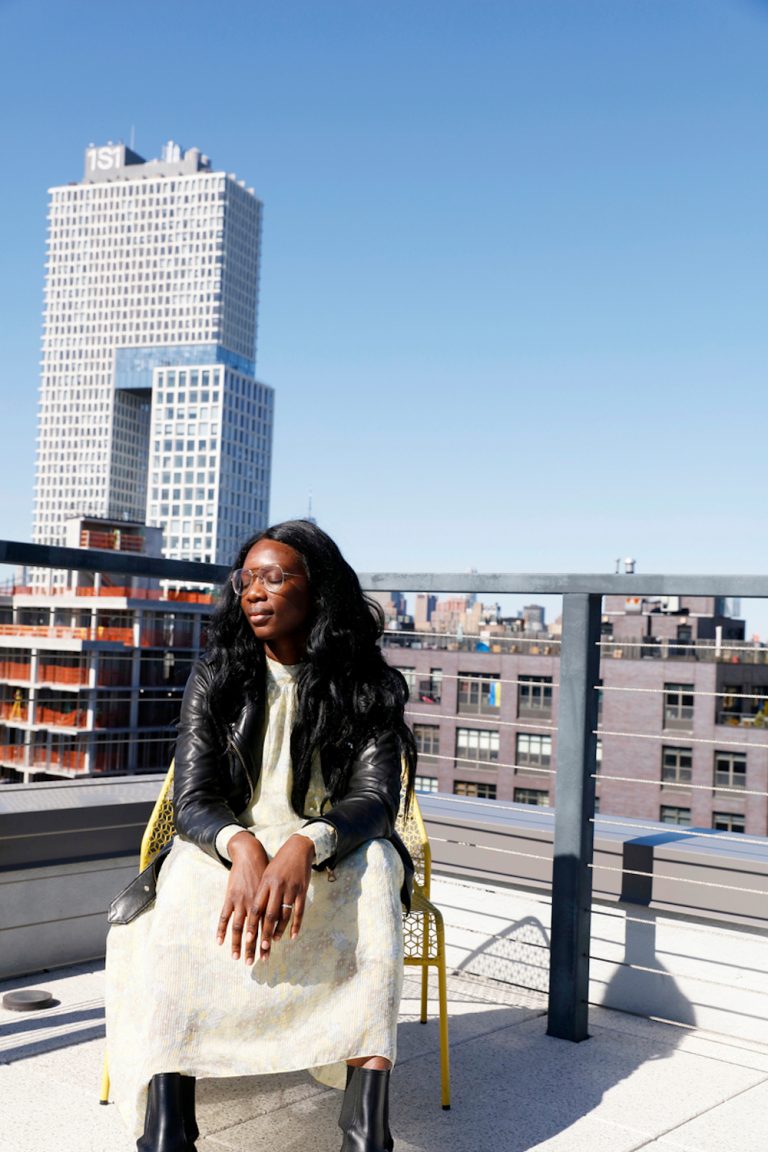Like many things that now live rent-free in my head, I didn’t give much thought to hormone health until TikTok sent the topic viral. I realize as a 28-year-old, that’s a privilege. My menstrual cycles are regular and relatively non-disruptive, I haven’t been diagnosed with a hormonal imbalance, and the status of my mood and skin fluctuate little throughout the month. But as the topic entered the mainstream, my curiosity was piqued—and I wondered how much my ignorance around hormone health impacted my understanding of myself. Thankfully, when Dr. Taz Bhatia’s book, The Hormone Shift came across my desk, I trusted the answers were in store.
As a board-certified integrative medicine physician who possesses the covetable Gwyneth Paltrow seal of approval, Dr. Taz combines modern science with Eastern medical wisdom. Her approach is personalized, understanding that, as women, we need to build a strong foundation across nutrition, movement, relationships, and self-care to truly thrive in life. And with the release of The Hormone Shift, Dr. Taz underscores just how crucial a piece hormones are of that puzzle.
Featured image from our interview with Inge Theron by Teal Thomsen.
How to Navigate Any Hormone Shift, According to Dr. Taz
But before you pick up her book and dive into Dr. Taz’s insights below, it’s important to understand what a hormone shift is. They take place throughout women’s lives—from puberty to pregnancy to perimenopause and menopause—and without understanding the symptoms of a hormonal balance, it’s impossible to feel our best.
I read (devoured, poured over) The Hormone Shift like a guidebook. As I obsessively flipped from page to page, I felt like I was gaining the hormonal education I should have received years ago. In it, you’ll learn what exactly is happening in your body during every shift (I’m at the end of “The Hustler Shift” and I’m definitely feeling it). Not only that, but I’ve found Part III—The Thirty-Day Hormone Reset—to be transformative in terms of my energy, sleep, and focus.
And you might be wondering—if “midlife” and “menopause” are splashed all across the cover, how can it apply to women in earlier stages of their hormone journey? With Dr. Taz’s expertise, you’ll understand just how interconnected all of our health decisions are. Trust me: it’s never too early to start testing your hormones and switching up your lifestyle to support them best.
So, if you’re ready to finally get the information you need to realize your best self, read on. Dr. Taz is breaking down some of the biggest myths about hormone health—and what you can do to finally feel better.

Your book dives into an area of women’s health that, for so long, has been skirted around. Why do you think hormone health is beginning to earn its spot as a key tenet of wellness?
“I think women are finally able to speak and say enough,” says Dr. Taz. In her book, she cites the metaphorical Band-aids that get slapped on us from a young age to manage our hormone shifts. But when girls experiencing puberty are given birth control without a conversation, we miss the opportunity to explore this area of our health.
Dr. Taz is optimistic though about the changing tides. “It’s time that we pay attention to the nuances of our bodies,” listening to messages our symptoms are trying to communicate. With the proliferation of social media to support a conversation that didn’t take place before, there’s also more space for women to share their experiences, ask questions, and connect over these shifts in our lives.
What’s more, Dr. Taz cites “the intermingling of cultures” and travel as another source of the shifting narrative surrounding hormone health. “We know there is not only one way to do things”—an element of her East-meets-West approach that’s revolutionizing how we address women’s health.

Your approach weaves Western medicine with Eastern modalities, such as Ayurveda and Traditional Chinese Medicine. Can you elaborate on the importance of applying these values to your work and approach to health?
As adoption of Eastern medicine practices has become more commonplace in the Western medical community, Dr. Taz is leading the charge. Having faced hormonal health challenges in her twenties as a burned-out medical student, Dr. Taz knows from experience what it’s like to have an established system fail you. Because of that, her holistic approach draws upon Chinese Medicine, Acupuncture, Ayurveda, and Integrative Medicine. With these practices in her toolkit, Dr. Taz not only healed herself, but has done so for thousands of women.
“Eastern systems of medicine were about optimization and replenishment of energy or qi,” notes Dr. Taz, contrasting this against Western practices, which she says “are largely about disease management in an acute or advance stage.” Not only does she observe how economically advantageous it is for medical providers to pull from both systems, but it’s essential for understanding and addressing the complexities of women’s health.
What would you cite as the top myths regarding women’s hormone health?
While myths abound in this still relatively-uncharted area of study, Dr. Taz cites the following as the most widely misunderstood:
- That we can’t check hormone levels because we cycle.
- That hormone replacement therapy is bad.
- That hormone shifts are something you cannot control.
How do you define detoxification? What is its importance in women’s effort to balance our hormones?
Our understanding of words like detox and toxins has been lost due to their widespread use in wellness marketing. Luckily, Dr. Taz can shed insight on the topic. “Detoxification is a very specific pathway that takes place in the body. There is a phase 1 and phase 2 detoxification. It’s driven by genetics, diet, nutrients, stress, and many other factors.”
She pushes the importance of learning more about your body to most effectively support your detox pathways. “We have to understand our detox capacity as it is directly related to our body’s ability to metabolize our hormones or hormones we are given, from birth control to HRT,” says Dr. Taz.
Your book is filled with so much wisdom and insight into how women of any age can effectively support their hormone health. What are the top things we can do as women to experience hormone balance that applies at any age?
Clean up your diet. Eliminate excessive alcohol, sugar, gluten, dairy, packaged, processed, and fast foods.
Sleep 7-8 hours at least 5 nights per week. Ideally, this time frame should be from 10-11 p.m. to 5-6 a.m. This sets the hormone rhythm and allows for effective hormone cycling.
Build a life you love. Your emotional frequency impacts your hormones just as much as your nutrients and a perfected wellness plan.
The sort of resistance you initially encountered when you sought help for your own hormonal issues seems so indicative of a larger American ethos—slap a Band aid on it and continue to push on. While we can support our hormones as individuals, what will it take for this to be a larger cultural shift?
“I think the more voices and the more demand drives revolution, drives the energy of change,” says Dr. Taz. She notes that this demand will only continue to grow—and the systems will shift because of it.
“Medical education will either have to evolve or be disrupted completely,” she continues. “For the moment, advocating for yourself and your family and supporting this movement through legislative advocacy and financial control may be the best ways.”


